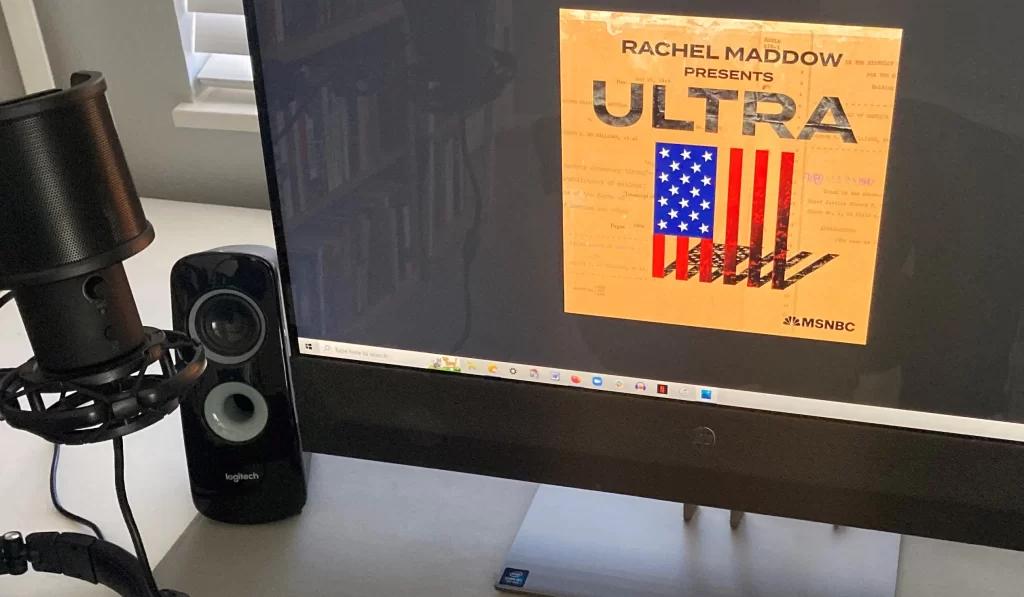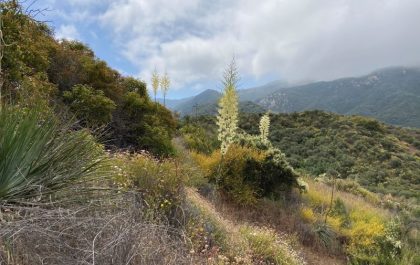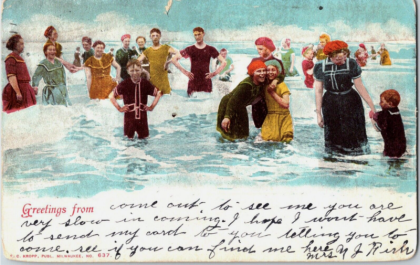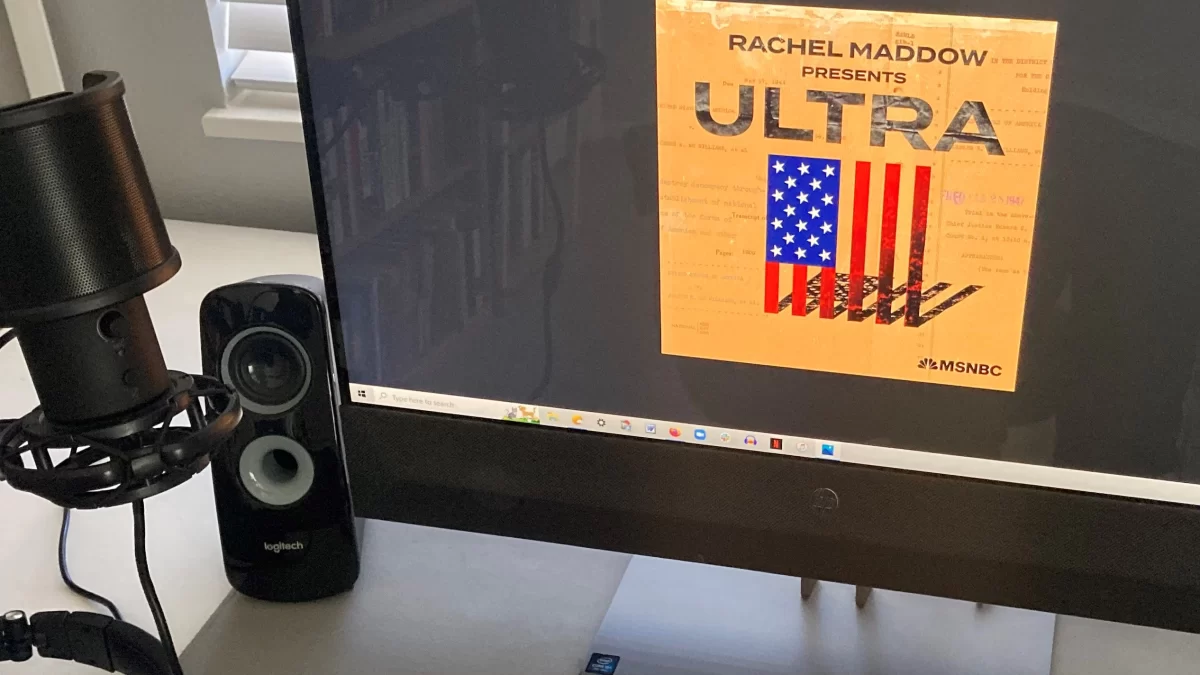
Liberal MSNBC commentator Rachel Maddow has stepped back from her long-running eponymous primetime show (TRMS), but just inked a $30 million per year contract with NBCUniversal, MSNBC’s parent company. While citing a number of health problems related to potential burnout, and still committed to a weekly appearance on TRMS, Maddow has been given a great deal of flexibility to pursue a number of pet projects, including film documentaries and books, that allow her to work at her own pace.
The most interesting of these projects is Maddow’s creation of long-form podcasts that allow a deep dive into singular subjects. For those familiar with TRMS, Maddow’s trademark nightly monologue often begins with a seemingly innocuous topic that, after 15 or 20 minutes, injects historical perspective into an urgent matter of the present moment. Long-form podcasts are the perfect vehicle to achieve the same thing on an even grander and more comprehensive scale.
I think it’s safe to say that the media we choose influences how we think; and also that cable news has stitched its indelible thread into the fabric of who we are as a people. Over four decades– CNN first began broadcasting 24 hour news to much of the nation in 1980 – cable TV news has largely shaped the national political and cultural conversation. Indeed, much of the passions of our day are clearly correlated to whether one watches CNN, MSNBC, or FOX.
I’ll venture to say that an America that finds the courage to wean itself off of its addiction to cable news would almost certainly make the country a better place to live. For me, I took the opportunity while doing the work for this column to avoid cable news; not an easy feat for a news junky. I watch a lot of CNN, enjoy a few shows on MSNBC, and check in with FOX now and then just for kicks. Now that I think about it, I typically just have the TV on in the background for a few hours of my day when doing chores or working on a home project. So, switching to a healthier diet of podcasts makes all the sense in the world.
I think that Rachel Maddow’s fatigue with cable news, mirroring our own, may be a sign that we are nearing the end of an era; and, given the size of her paycheck to dial back her time on cable news, hopefully arriving at the beginning of a new, more enlightened one.
Many of the podcast/radio shows I have been listening to for quite some time have evolved through my love of National Public Radio. Each episode of This American Life tends to explore a unique theme of the broad human experience; often through two or three different stories. Radiolab—as in radio laboratory—from WNYC Studios explores scientific, political, and historical questions and much more. If you are one of the few souls unfamiliar with these spectacular shows, I envy you the hundreds of magical stories that are yours for the listening.*
For years, I have been amazed at how many times my contribution to a conversation, or a thought that grew into a published piece, can be traced back to these shows. They are overwhelmingly inspiring, beautifully rendered, and sound-tracked with image-inducing music and sound effects. Indeed, the earliest episodes of both of these shows predate the coining of the word “podcast” in 2004. In 2005, the New Oxford American Dictionary declared “podcast” their word of the year. This American Life and Radiolab can arguably be seen as the models for this new medium whose technology is now in the hands of just about everyone with a microphone, a computer, and an internet connection.
Just as cable TV news contributed to the demise of newspapers over the previous generation, there is evidence that podcasting may similarly be taking a bite out of the cable TV news market. For those looking for a quick rundown of the day’s news without all the repetitive pronouncements from CNN, MSNBC, or FOX, check out The Daily produced by the New York Times which promises “This is what the news should sound like. The biggest stories of our time, told by the best journalists in the world… Twenty minutes a day, five days a week, ready by 6 a.m.”
I’ve also enjoyed the Politico Playbook Daily Briefing, a 5-10 minute rundown of politics. The Takeaway from WNYC Studios offers a review of world, national and regional news in daily installments of about 20 minutes each. That might be enough right there to tune out from the TV a bit. Axios Today at around 10 minutes and NPR News Now at 5 minutes are two more popular daily news podcasts that also get the job done without the ranting.
While these brief news programs offer a convenient and entertaining way to get your daily news, it is the emerging presence of the long-form podcast that has the potential to help a hurried citizenry slow down and think.
Case in Point: Rachel Maddow Presents: Ultra.
Over eight episodes of roughly 40 minutes each, Ultra takes a deep dive into a moment in our history that eerily resembles our own. Set directly before and during World War II, a significant number of American organizations such as the Christian Front and the America First Committee, along with a startling collection of celebrities and members of congress, loudly proclaim their support for Adolph Hitler and the fascist ideas of Nazi Germany.
At the center of it all is Nazi Propagandist and German-American agent George Viereck. Taking his marching orders from the highest echelons of Hitler’s inner circle, American citizens throughout the country were bombarded with the virtues of nationalistic fascism and the anti-Semitic harangues that would eventually underscore the Holocaust.
Swastikas were widely displayed, propaganda was directed at dividing the country along racial and ethnic lines, and members of the military were recruited to join the fascist cause.
Exemplifying the terrifying pervasiveness of fascist ideology, the nationwide radio broadcasts of Catholic priest Father Charles Coughlin reached an audience of 30 million Americans at a time when the population of the country was only 120 million. Known as the Radio Priest, Coughlin spewed anti-Semitic venom while harshly criticizing Franklin Delano Roosevelt and, in turn, lavishing praise upon fascist dictator Benito Mussolini of Italy and Adolph Hitler.
In an August 2022 interview with Vanity Fair’s Joe Pompeo, Maddow describes Ultra as an “underappreciated story… that has resonance for all the things we’re dealing with today – the threat of authoritarianism and the question of whether or not criminal law is the appropriate venue, and has the right constitutional powers, to handle those kinds of threats. It’s about journalism and journalistic ethics, and the ability of powerful people to manipulate American systems.”*
The production of Ultra is rich with music and original recordings, many of which have been harvested from the vast archival treasures of NBC. Most importantly, this fascinating and revealing story offers solid context with which to manage the chaotic times in which we live. Maddow is earning her 30 million bucks.
Another long-form podcast strikes at the manner in which a free people can be manipulated by nefarious actors in positions of power and the media. Set in Birmingham, England, The Trojan Horse Affair—eight, hour-long episodes produced by Serial Productions and the New York Times—follows the publication and distribution of a letter “laying out an elaborate plot by Islamic extremists to infiltrate the city’s schools.”**
The problem is that the letter may have been produced as a hoax to distract school officials from the bad behavior of school employees and the council that oversees the schools in Birmingham. The Trojan Horse Affair is based upon real events which played out among the British people in the early 2010s and their reactions to the letter offer insight into how quickly well-meaning people can turn against their neighbors.
Understanding how this same thing can easily happen to our own society will, hopefully, prepare us for the inevitable conflicts that seem to be bubbling up all around us. This is the imminent potential power of artfully crafted long-form podcasts.
Here are a few of my other favorite podcasts that may be of interest.
The Slate Daily Feed—30-70 minutes each—includes new episodes from more than 30 shows on the Slate Podcast Network. The Book Review from The New York Times is a great place to get book suggestions or just let you in on what others are reading. The New Yorker Radio Hour follows the format of the popular magazine which means you’ll hear thoughtful commentary and discussion on a wide range of topics. Throughline from NPR claims revealingly that “Every headline has a history.” Pod Save America, which drops on Tuesdays and Thursdays, brazenly claims that it is “A no-[BS] conversation about politics.”
Podcast subjects now cover the gamut of human activities; sports, comedy, gardening, cooking, healthy living, and on and on; and seeking out and finding those of interest is terribly simple. For instance, my love of history is enriched as renowned author and intellectual Malcolm Gladwell hosts Revisionist History; posing questions such as, “If you have power, what does it mean to use it wisely?” And, for those who were encouraged to listen to 1865, which I reviewed in this space, you will certainly enjoy History Daily, also narrated and performed by Lindsay Graham; not the senator, but rather, the talented and articulate historian who deftly offers up a 20 minute exploration of a single topic in a This Day in History format.***
Many of you must certainly have more experience with the vast multitude of podcasts available today. I hope, after reading this, you might take the time to share some of your favorites. I’d especially like to hear from those of you who have become familiar with my general interests as expressed in these bi-weekly meanderings. I also encourage you to share your podcasting “skills” with those in your sphere of influence who may not quite get how to navigate the technology of this burgeoning cultural phenomenon.****
I look forward to hearing from you. Enjoy.
**https://www.nytimes.com/interactive/2022/podcasts/trojan-horse-affair.html
***https://topanganewtimes.com/2021/10/22/1865/
***I manage my podcasts within Apple iTunes which is super-convenient for me. I’ve organized my music around iTunes so I know my way around their app on my computer and my phone. Finding a single place to manage your podcasts is recommended, perhaps even before you begin looking for individual listens.












